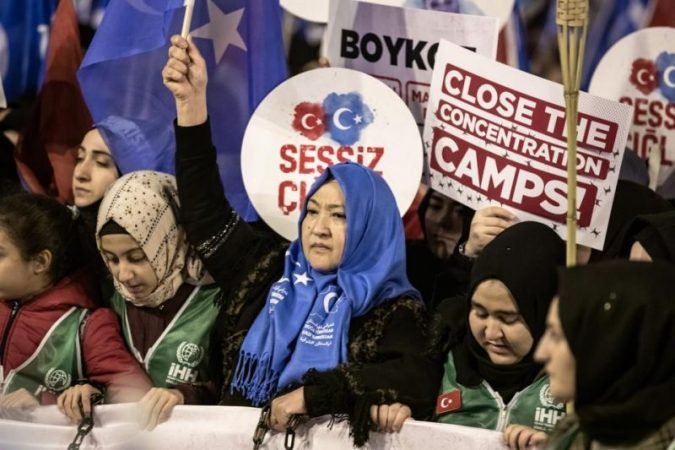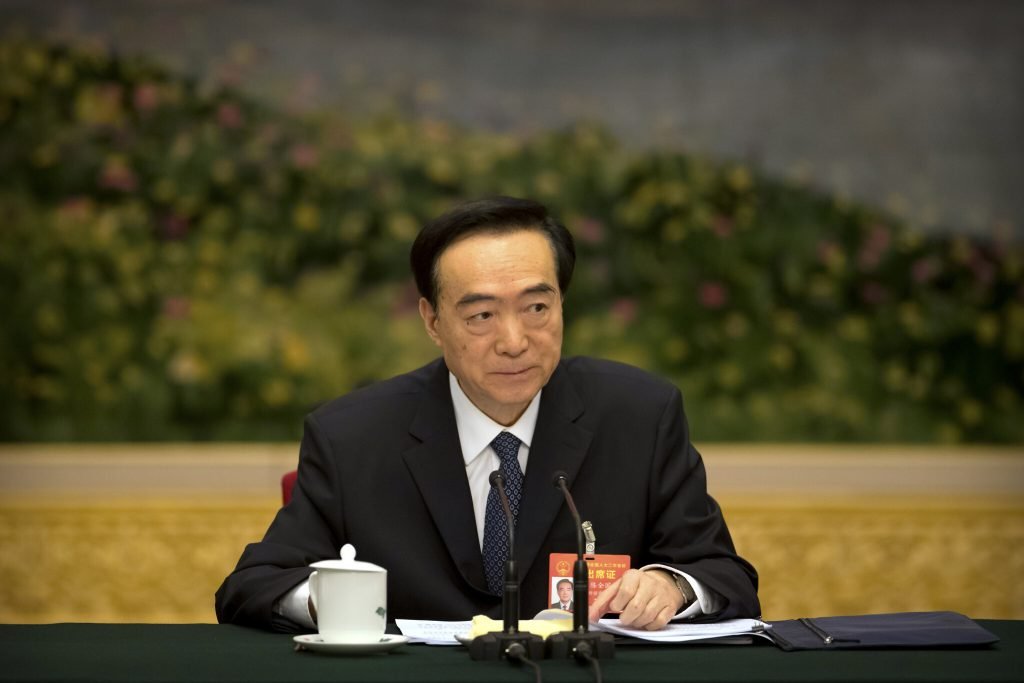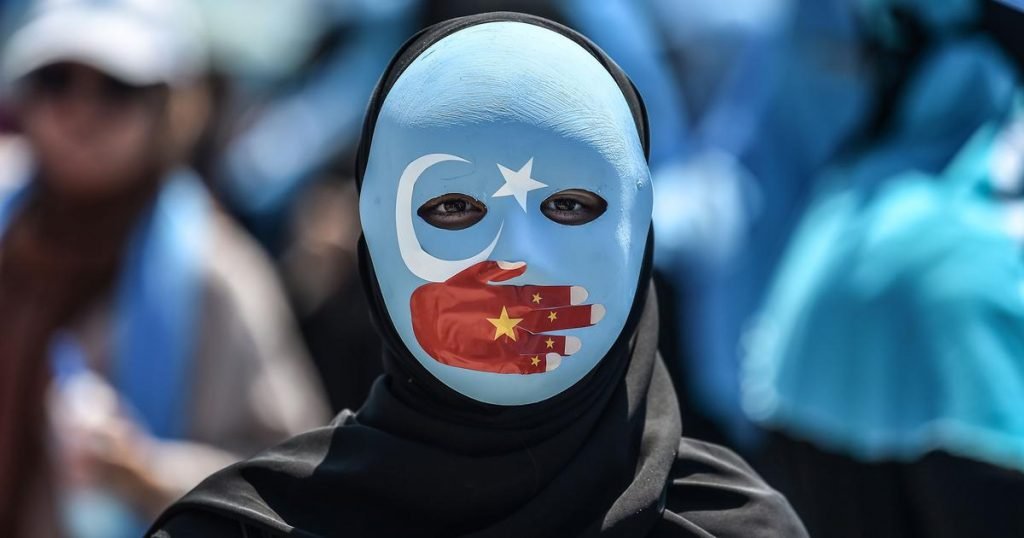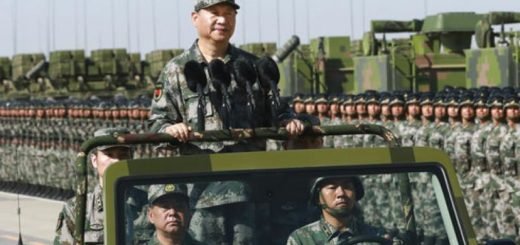West Sanctions versus East Sanctions: An effective approach for the Uighurs?

China and the West are in a new diplomatic row as the United States of America, Canada, the United Kingdom and the rest of the European Union members have issued sanctions against the dragon. The role of sanctions has not gone down well in the past. “Sanctions are a sign of irritation; they are not the instruments of serious policies” as once mentioned by Sergei Lavrov, Foreign Minister of the Russian Federation. The diplomatic confrontation was born out of “triggers” to the West upon China’s treatment of the Uighur Muslims in the country’s Xinjiang province. Despite countless efforts by the Chinese government who have termed ‘concentration camps’ as ‘rehabilitation centres’, it has never answered the question as to why these rehabilitation centres only for the Uighur Muslims exist. The treatment being meted out to these minorities have been a cause of concern that has not only attracted global attention but also highlighted the incapacity of international organizations to take any stern actions against China.

“Coordinated Efforts” by the UK, US and Canada as Dominic Raab, UK’s Foreign Minister calls it, the sanctions are directed towards addressing the minority issue and their sufferings in the Xinjiang province. The sanctions were made against both former and current Xinjiang Officials—Zhu Hailun, Wang Junzheng, Wang Mingshan and Chen Mingguo. Post sanctions, US Secretary of State Antony Blinken mentioned that it was a necessary step to bring an end to the sufferings of the Uighurs. Last week when Blinken had exchanged dialogues with Chinese Foreign Minister Wang Yi in Alaska, the latter did warn the US to not interfere in their domestic matters. Although the meet ended on a positive, yet uneasy note, cooperation has been seized between the two and most certainly US’s strategy to revive its alliances might not align with the present scenario. Taiwan, Hong Kong, Xinjiang Province, economic policies and increase cyberattacks have been a boundless deal between China and the West. The so-called coordinated efforts by the West and the EU have several intricacies associated with it. An attack on China over minority issues was not the safest option given these countries have a serious history of oppressing people from different race and culture. Colonialism and Supremacy here takes precedence and it will not be a fair deal to not present two sides of the story. Here again, the underlying value that must be realized by the Chinese is that one must not aim for a retributed argumentation because diplomacy is not about that. The world is supposed to sustain the ideals of cooperation and communication.

But the debate between China and the West of course never dies down so fast. Immediately after sanctions were released, the Chinese Government also issued sanctions against eminent scholars all across the European Union who have been, for some time “anti-Chinese”. Global Times, the state-owned Chinese media outlet mentioned the country’s plan to pawn the West’s forfeiture. The article published in the Global Times highlighted incidents of the Holocaust, the UK’s colonization of Hong Kong and how the US has “weaponized” the human rights issue. Major European parliamentarians were also on China’s sanction list. The article further defended that China will continue to work for its interest and that European nations, especially the UK must not side with the US’s ‘appendage’. Last year, major trade deals were signed between China and the EU and with sanctions in the picture, it would be difficult to ascertain the future picture of trade between the two. After the Brexit, the EU’s functions have focused highly on free trade and more investments to be drawn into and China is an important player when it comes to this domain. The sanctions now might halt the economic deals between the two and the reversal of this impact could be prolonged.
The West versus China has been a protracted game and after the Cold War, the hegemony of the US was amplified. The country came out strong and undefeated in all aspects—from military to cultural. But situations started changing as President Xi Jinping took charge of the Chinese Communist Party. The US found a strong rival and unlike the Cold War times, China emerged as a power that was difficult to comprehend and also to build an alliance with. Of course, ideology is the biggest factor here and the West’s wariness to communism has very well been highlighted during the Cold War with the erstwhile USSR. The recent sanctions again point that despite all focus on a multipolar world with both state and non-state actors involved, there are scares of unipolarity reigning. After the formation of the United Nations, the world has been too focused on bringing countries under one umbrella roof, all the more neglecting the country’s interests. Remarks or judgements passed by foreign countries are seen as a direct threat to the country’s sovereignty and its internal affairs.

Unipolarity may sound utopian and invalid, but a closer analysis only presents that it is the ideology between these countries that have been at the battle. If it weren’t for the dominance of one ideology over the other, the institutions would have functioned better to sever the purpose for which they were reinstated in the first place. The atrocities meted out to the Uighurs in Xinjiang province has been going around for a long time now, and with all the countless meetings, warnings and even UNHRC resolutions that were directed towards mending the situation, it has achieved little success. The level of pain for the community has only amplified and yet these sanctions, one wonders, would do any good for those people locked in the concentration camps. The intervention needs actions and mere sanctions to show dominance and captivity is not the only solution. The future of the Uighurs is yet to be ascertained and as mentioned earlier, the European Union may be in a fix now given China was acting as a key investor, but the effectiveness and efficiency of these sanctions from both sides are ambiguous. Retribution here, must not be the resolution but rather dialogue and comprehension should take precedence.


















